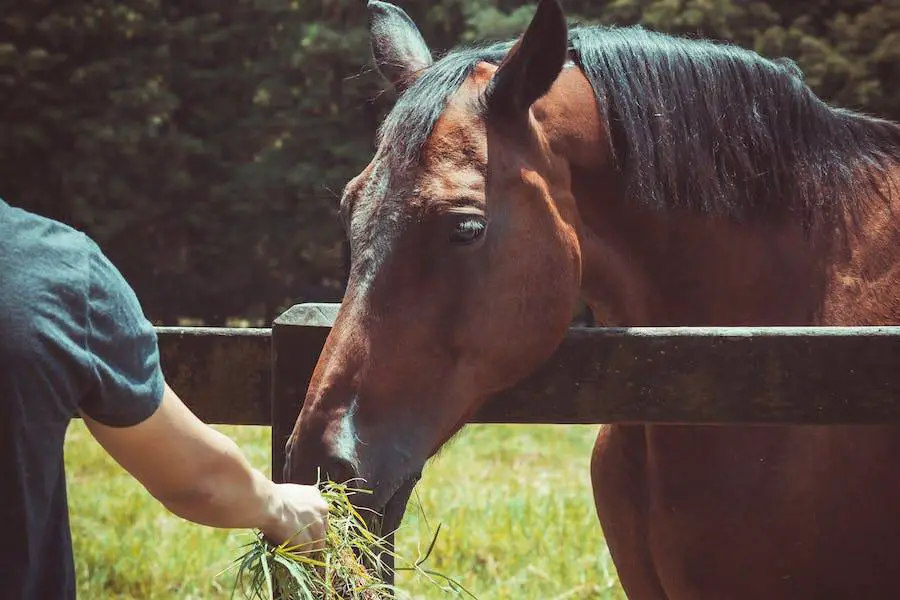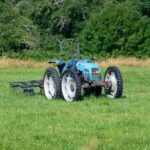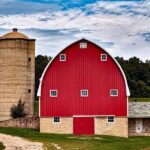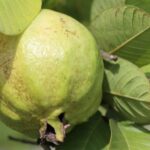Table of Contents
Rye Grass hay, a common feed for horses, has long been praised for its nutritional value and palatability. Yet, as with any feed, it’s important to understand its strengths and potential drawbacks fully.
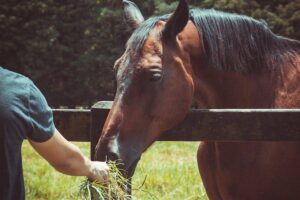
This comprehensive guide will explore the origin, nutritional profile, benefits, risks, feeding best practices, and special circumstances related to feeding horses Rye Grass hay.
Nutritional Profile of Rye Grass Hay
Macro and Micronutrients
Rye Grass hay is rich in essential nutrients required by horses. It provides a good source of protein, fiber, and energy.
Additionally, it contains vital minerals such as calcium, phosphorus, and magnesium, and vitamins including vitamin A and E.
However, the exact nutritional content can vary based on factors such as the growth stage at harvest and soil conditions.
Comparison with Other Hay Types
Compared to other common types of horse hay, Rye Grass hay generally has a higher protein content and a lower fiber content.
It is often more palatable to horses than many other hay types due to its soft texture and sweet taste.
Benefits of Rye Grass Hay for Horses
Digestibility and Gut Health
One of the primary benefits of Rye Grass hay for horses is its high digestibility.
The relatively low fiber content compared to other hay types makes it easier for horses to digest, which can be particularly beneficial for older horses or those with dental issues.
Moreover, the high-fiber diet aids in maintaining gut health and preventing digestive disorders such as colic.
Energy and Performance Implications
Rye Grass hay can provide a substantial energy source for horses, making it a popular choice for performance horses or those with high energy requirements.
The high protein content also supports muscle development and recovery, further enhancing its suitability for active horses.
Weight Management
Rye Grass hay can be an excellent tool for weight management in horses. It provides medium levels of calories, making it a suitable option for maintaining a healthy weight in horses.
It can prevent excessive weight gain in sedentary horses while providing sufficient energy for active ones.
Rich in Essential Minerals
Rye Grass hay is rich in essential minerals, including calcium, which is crucial for maintaining strong bones.
This makes it beneficial for horses at all life stages, from growing foals needing support for skeletal development to older horses requiring bone health maintenance.
Versatility in Dietary Use
The nutritional profile of Rye Grass hay allows it to be used effectively in various dietary scenarios.
For horses with higher nutritional needs, it can be paired with other nutrient-dense feeds like alfalfa.
For horses with low energy needs or metabolic issues, it can be used alongside lower-energy feeds like teff.
Supports Healthy Coat and Skin
Rye Grass hay contains essential fatty acids and vitamins that contribute to a healthy, shiny coat and good skin condition in horses.
Regular consumption of Rye Grass hay can help improve the appearance of a horse’s coat, making it look glossier and feel smoother to the touch.
This can be particularly beneficial for show horses, where coat condition plays a significant role in their presentation.
Potential Risks and Drawbacks
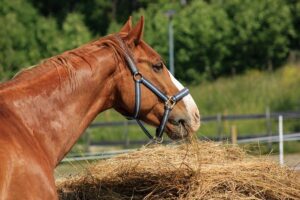
Allergenic Potential
While Rye Grass hay is generally well-tolerated by most horses, some may develop allergies or sensitivities to it. Symptoms can range from mild skin irritations to respiratory issues.
If a horse shows signs of an allergic reaction, it’s important to consult with a veterinarian.
Possible Toxicity Issues
Some varieties of Rye Grass can develop endophyte fungus, which produces toxins that can cause health issues in horses, including ryegrass staggers.
Ensuring the hay is sourced from reputable suppliers and regularly tested can help mitigate this risk.
Excessive Protein Intake
While Rye Grass hay is beneficial for horses, it’s important to note that it has a relatively high protein content compared to some other types of hay.
If fed in large amounts without balancing with other feeds, it could lead to excessive protein intake.
High levels of protein consumption can put unnecessary strain on a horse’s kidneys and may lead to dehydration since the body uses more water to process protein.
Therefore, it’s crucial to ensure a balanced diet that meets but doesn’t excessively surpass the horse’s protein needs.
Best Practices for Feeding Rye Grass Hay
Determining Suitable Quantities
The amount of Rye Grass hay to feed a horse depends on several factors including the horse’s age, weight, activity level, and overall health status.
Generally, horses should consume 1.5-2% of their body weight in forage daily. However, it’s recommended to consult with a veterinarian or equine nutritionist to establish an optimal feeding plan.
Balancing with Other Feed Types
While Rye Grass hay can be a significant part of a horse’s diet, it should be balanced with other feed types to ensure a well-rounded nutrient intake.
Supplementing with other types of hay, grain, or specific equine supplements can help achieve this balance.
Monitor Your Horse’s Body Condition
When feeding Rye Grass hay to your horse, it’s crucial to regularly monitor their body condition.
This will help you adjust the amount of hay you’re feeding to ensure that your horse is maintaining a healthy weight.
If your horse starts to gain too much weight, you might need to reduce the amount of Rye Grass hay you’re feeding.
Conversely, if your horse starts losing weight, you may need to increase the amount of hay or supplement it with higher-calorie feeds.
Gradual Introduction to Rye Grass Hay
When introducing Rye Grass hay into your horse’s diet, it’s essential to do so gradually. A sudden change in diet can disturb a horse’s digestive system and potentially lead to health issues.
Start by replacing a small amount of their current hay with Rye Grass hay, and gradually increase the proportion over a few weeks. This will give your horse’s digestive system time to adjust.
Regularly Check the Quality of Hay
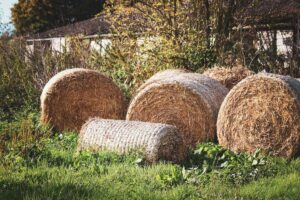
Rye Grass hay, like any other hay, can vary in quality depending on factors like the growing conditions, when it was harvested, and how it was stored.
Poor-quality hay may not provide all the nutritional benefits you’re expecting and can even be harmful to your horse.
Make sure to check the hay for signs of mold, dust, or other contaminants before feeding it to your horse. Good quality hay should be green, aromatic, and free from dust and mold.
Rye Grass Hay in Special Circumstances
Young, Old, or Pregnant Horses
For young, growing horses, the high protein content in Rye Grass hay can support their development.
Similarly, for older horses with reduced chewing ability, the soft texture of Rye Grass hay can make it easier to consume. Pregnant mares may also benefit from the increased energy and protein content.
Horses with Specific Health Conditions
Horses with certain health conditions may require special consideration when feeding Rye Grass hay.
For instance, horses prone to laminitis or metabolic disorders may need to limit their intake due to the relatively high sugar content.
Always consult with a veterinarian when managing a horse with health conditions.
Conclusion
In conclusion, Rye Grass hay can be a beneficial part of a horse’s diet, offering high digestibility, substantial energy, and a good nutrient profile.
However, it’s crucial to consider potential risks and ensure a balanced diet tailored to each horse’s individual needs.
With careful management, Rye Grass hay can contribute positively to a horse’s health and performance.

